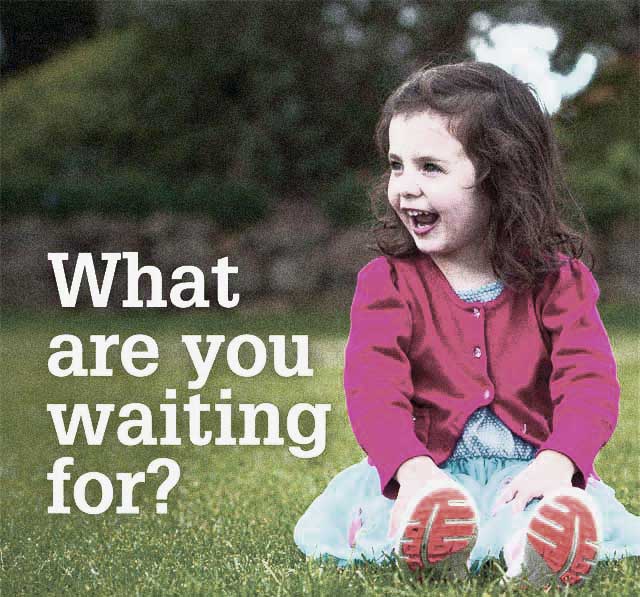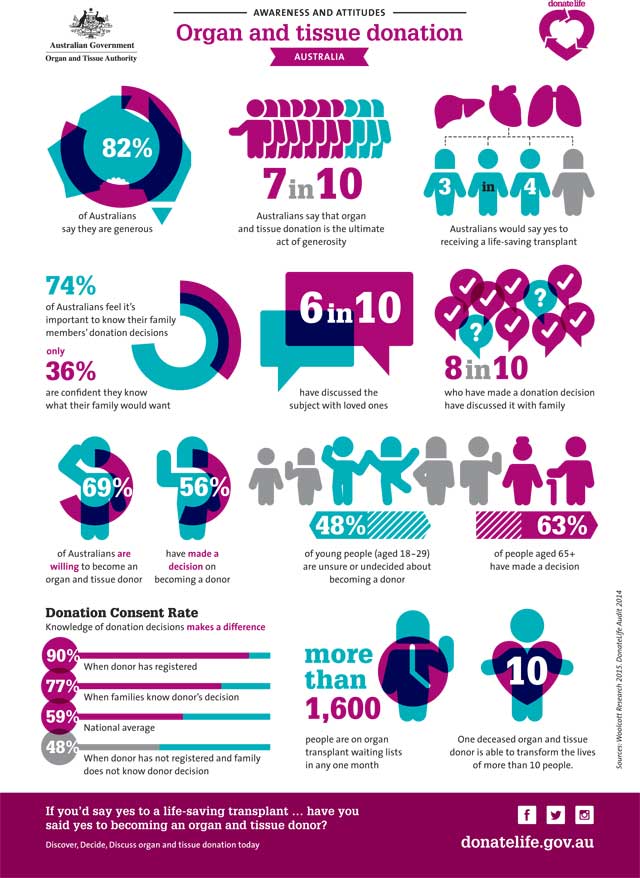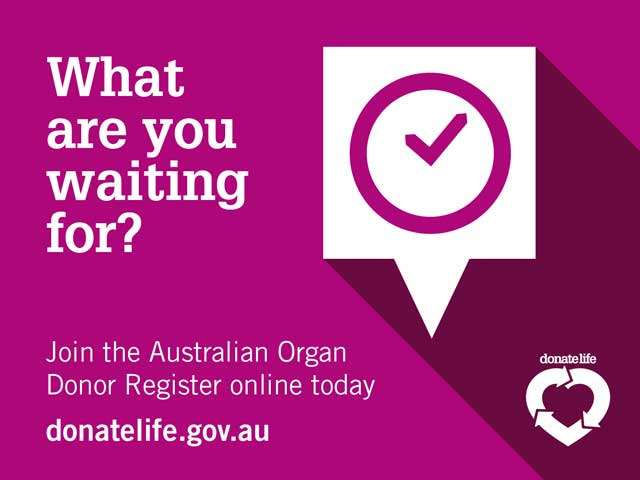Donate Life Week

While Australia is a world leader for successful transplant outcomes, there are still around 1,600 people on Australian organ transplant waiting lists at any one time. Donate Life Week, which runs from the 31st of July until the 6th of August, aims to promote awareness of organ and tissue donation in Australia.
The main focus of the campaign is to encourage the public to join the Australian Organ Donor Register (AODR). PhD researcher at the University of Canberra, Sean Dicks, is studying the coping mechanisms of families who are asked to make a decision about donation at the time of a loved one's death. He believes that if your family is aware of your donation preference, it makes their decision easier. Statistics show that in the cases where family are aware that the deceased would have wanted to donate their organs, 90% will follow those preferences.
Where families do not know their relatives wishes, the decision can be a very difficult one.
Some families are able to reflect on their relative's nature and behaviour, and then make a decision, while other families decline donation because they find the decision too difficult.
Looking at a person's attitude towards donation while they are alive is also important. A number of factors, including personality, exposure to information about donation, or whether or not they know someone who needs or has had a transplant may contribute to someone's attitude to donation. Many people do not realise how urgent the need for organs is, only about 1% of those dying in hospital can actually become donors."

Sean has begun studying the decision-making process of families and the support they receive, as well as their relationship with the deceased, and their coping with the death. He believes that these factors are all connected.
"Extensive research has been conducted internationally to explore ways of appropriately providing families with information and emotional support during their decision-making in order to assist families to make a decision that will be an enduring one."
Less research has been conducted to explore the ways that families can be assisted with their grieving during or after their decision-making process.
This may include building bereavement-support into the in-hospital process, and enhancing the follow-up support provided to families.
Through his study he hopes to find if there are specific ways we can assist with bereavement; by identifying the factors that contribute to positive outcomes and giving families a head start in their grieving process.
Members of the public are encouraged to find out more about donation so that they can make an informed decision. After making a choice it is important to communicate that with family, so that they know and understand if they were ever asked to make a decision about donation.
"A person can also register their preferences on the Australian Organ Donor Register. When someone is in the position of being a potential donor, the register will be consulted and the registered preferences will be discussed with family members."

Words by Stephanie Cossetto & Sean Dicks, images courtesy of donatelife.gov.au
For more information on Donate Life Week please visit http://www.donatelife.gov.au/donatelife-week
To register donation preferences visit the Australian Organ Donor Register.
Sean Dicks will be speaking at the TedXCanberra: Alumni Open Mic Night.

